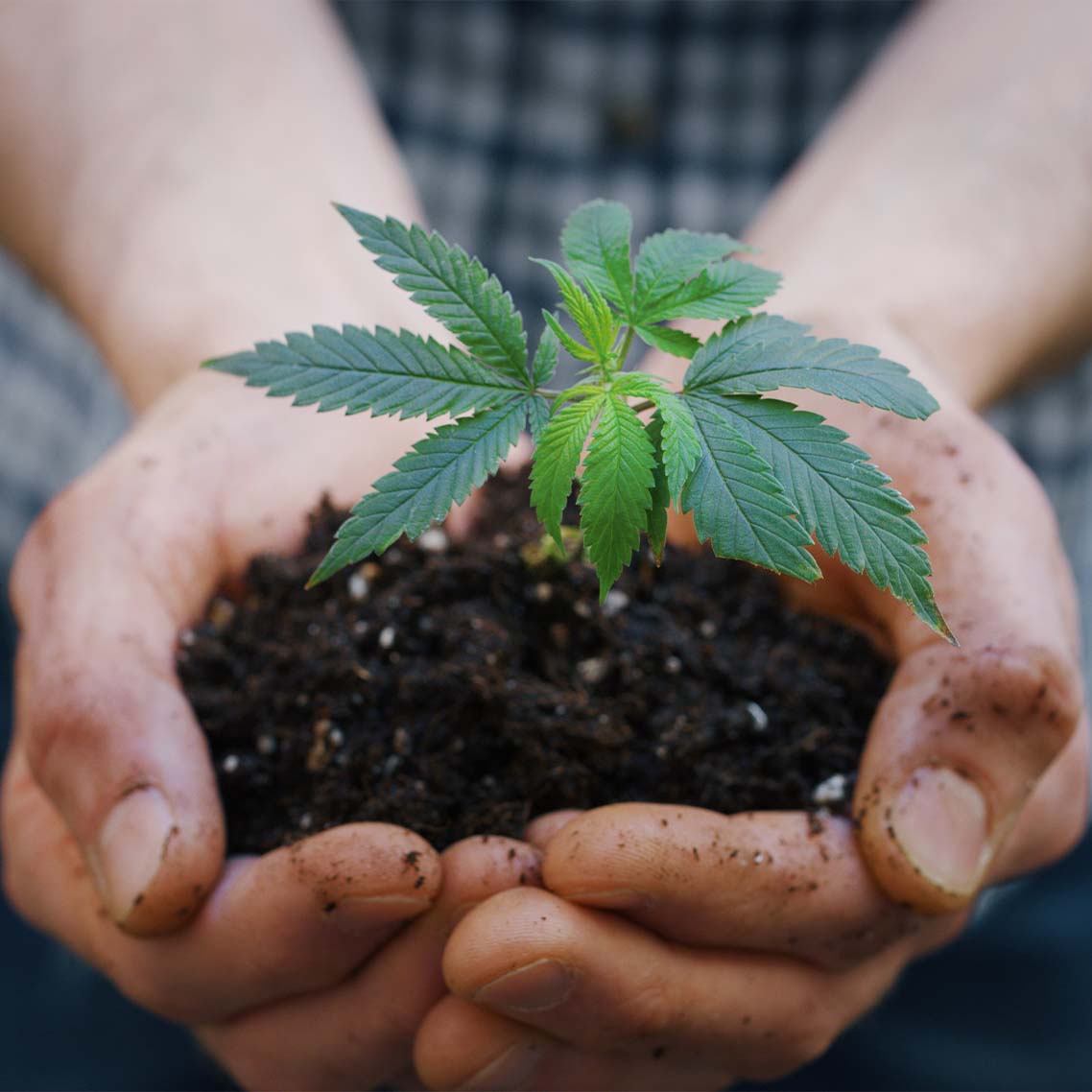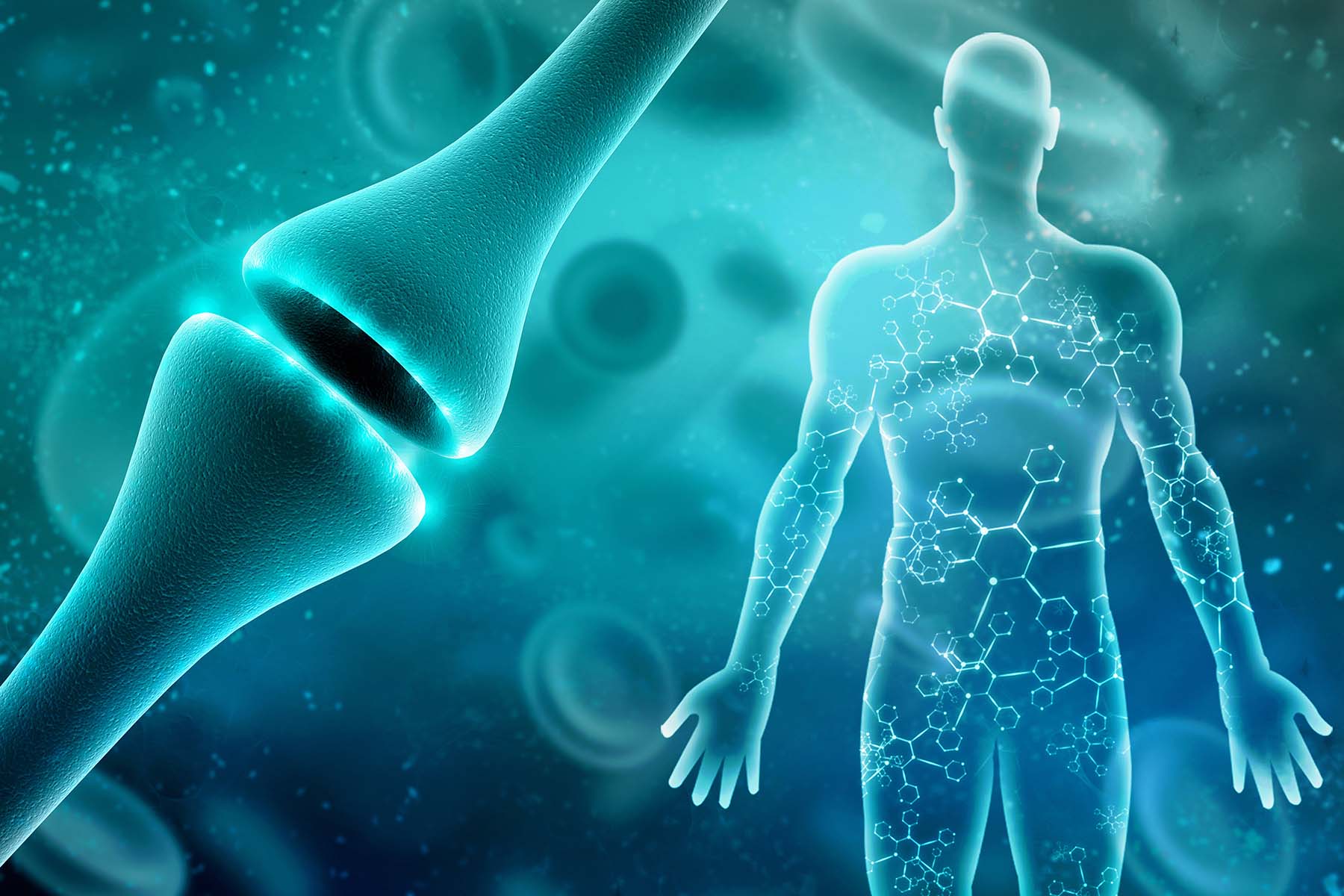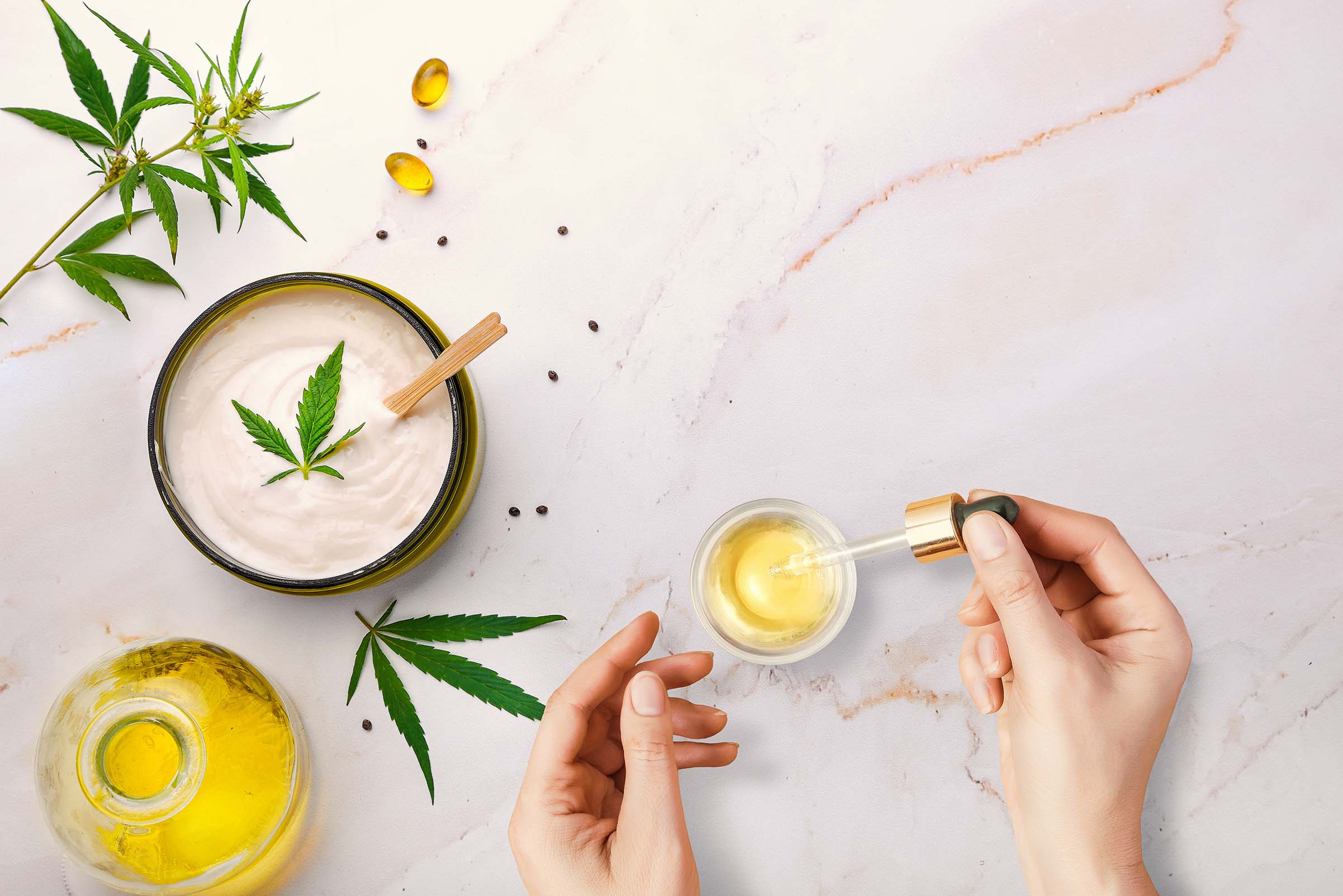
What is CBD?
Cannabidiol (CBD) is one of the hundreds of active cannabinoids found in the hemp plant. Unlike its more famous counterparts, such as THC (tetrahydrocannabinol), CBD doesn't get you high.
Because of this, CBD is a legal compound that can be added to your body care regimen to help support a variety of natural processes such as immunity, mood, and overall wellness.
How It Helps
The Benefits of CBD
CBD offers a wide range of potential wellness benefits, with an impressive roster of peer-reviewed research to back up its claims.
CBD can help:
• Soothe sore muscles
• Reduce inflammation
• Protect your skin
• Improve sleep quality
• Combat stress and anxiety
• Alleviate symptoms associated with chronic conditions
WHAT IS THE ENDOCANNABINOID SYSTEM?
Our bodies contain a specialized system called the endocannabinoid system (ECS), which receives and translates signals from cannabinoids like CBD. You can think of the ECS as a balancing system for our bodies.

THE ENDOCANNABINOID SYSTEM IS MADE UP OF THREE MAJOR COMPONENTS:
Receptors: Through which cannabinoids sent from outside the body communicate with different parts of the cell. There are two kinds of receptors in the ECS.
• CB1 Receptors: Located in the brain and spinal cord, these are the most prevalent cannabinoid receptors in the body.
• CB2 Receptors: Located throughout the body and in cells of the immune system, these are not as densely clustered as CB1 receptors.
Endocannabinoids (endogenous cannabinoids): Created naturally in the body by all mammals, these are similar to cannabinoids found in hemp and cannabis.
Enzymes: These work to synthesize and break down cannabinoids once they’ve been used by the body.
These three components work together to respond to any threats of imbalance in the body's internal environment. When the ECS senses a threat, it activates a series of mechanisms in the body that restore homeostasis (balance). When activated, cannabinoids bind to the CB1 and CB2 receptors throughout the body in an attempt to maintain equilibrium without altering other body systems.
In a state of homeostasis, the endocannabinoid system is in balance with all other systems in the body, including the:
• Immune system: fights diseases and infections
• Nervous system: allows us to feel pain and pleasure
• Muscular system: creates movement and blood flow through the body
• Digestive system: breaks down food and nutrients
When all body systems are in balance, you’re in a state of optimal health. CBD can promote this internal balance by restoring the ECS, which may have been damaged by injury, stress, or overworking.
When you supplement with CBD, your body is better equipped to maintain homeostasis and facilitate the natural healing process.
Product Types
CBD ISOLATE VS BROAD SPECTRUM VS FULL SPECTRUM
There are three forms of CBD products available, each containing different plant compounds. This includes CBD isolate, broad-spectrum, and full-spectrum.
CBD Isolate
This is the purest form of CBD available. It contains only CBD and has been isolated from other cannabinoids and terpenes. It's also free of THC (the compound that causes a high).
Broad-spectrum
This form of CBD contains many additional cannabinoids and terpenes derived from hemp, without THC.
Full-spectrum
This form of CBD typically contains a very small amount of THC, less than 0.3%. Because it has been combined with all other cannabinoids found in hemp, full-spectrum CBD works to harness the power of the "entourage effect" to promote homeostasis.
More Topics
For most people, CBD does not cause side effects. As with any supplement, it's important to take the product as directed by the manufacturer. If you have concerns about how your body will tolerate CBD, start with a lower dose than what's recommended on your products label.
Because CBD is a natural supplement, it interacts with our bodies in many different ways. It helps maintain homeostasis by working to balance each of your body's systems. The best way to determine if CBD will work for you is to give it a try!
Hemp and marijuana are both varieties of the cannabis plant, scientifically known as Cannabis sativa. The only major difference between hemp, or industrial hemp (the kind used for making clothing, biofuels, etc.), is that hemp does not contain high levels of tetrahydrocannabinol (THC).
No, CBD will not make you feel high. It contains less than 0.3% THC, which is the psychoactive compound in cannabis known for causing a euphoric high. Because the amount of THC is so low, you can't get high from taking CBD—which means it’s not classified as marijuana.
Marijuana naturally has high levels of tetrahydrocannabinol (THC) — the psychoactive cannabinoid known for causing feelings of euphoria. Marijuana can contain upwards of 25% THC, while hemp-derived CBD products contain less than 0.3% — making them non-psychoactive and safe to consume.
There are many different CBD products available for you to choose from, including those that contain THC and those that do not.
All Canodyne products are THC-free, so you'll never have to worry about the psychoactive effects. You'll also find a range of different strengths and forms (oils, gel caps, pain gel, lotion), some of which work better for certain ailments.
Because each person's needs are different, it's important to find a product that will fit into your daily routine. If you're new to CBD, consider starting with a smaller dose and then gradually increasing until you find the right balance.
If you take other supplements or medications, make sure to check with your doctor before adding CBD into your routine.




